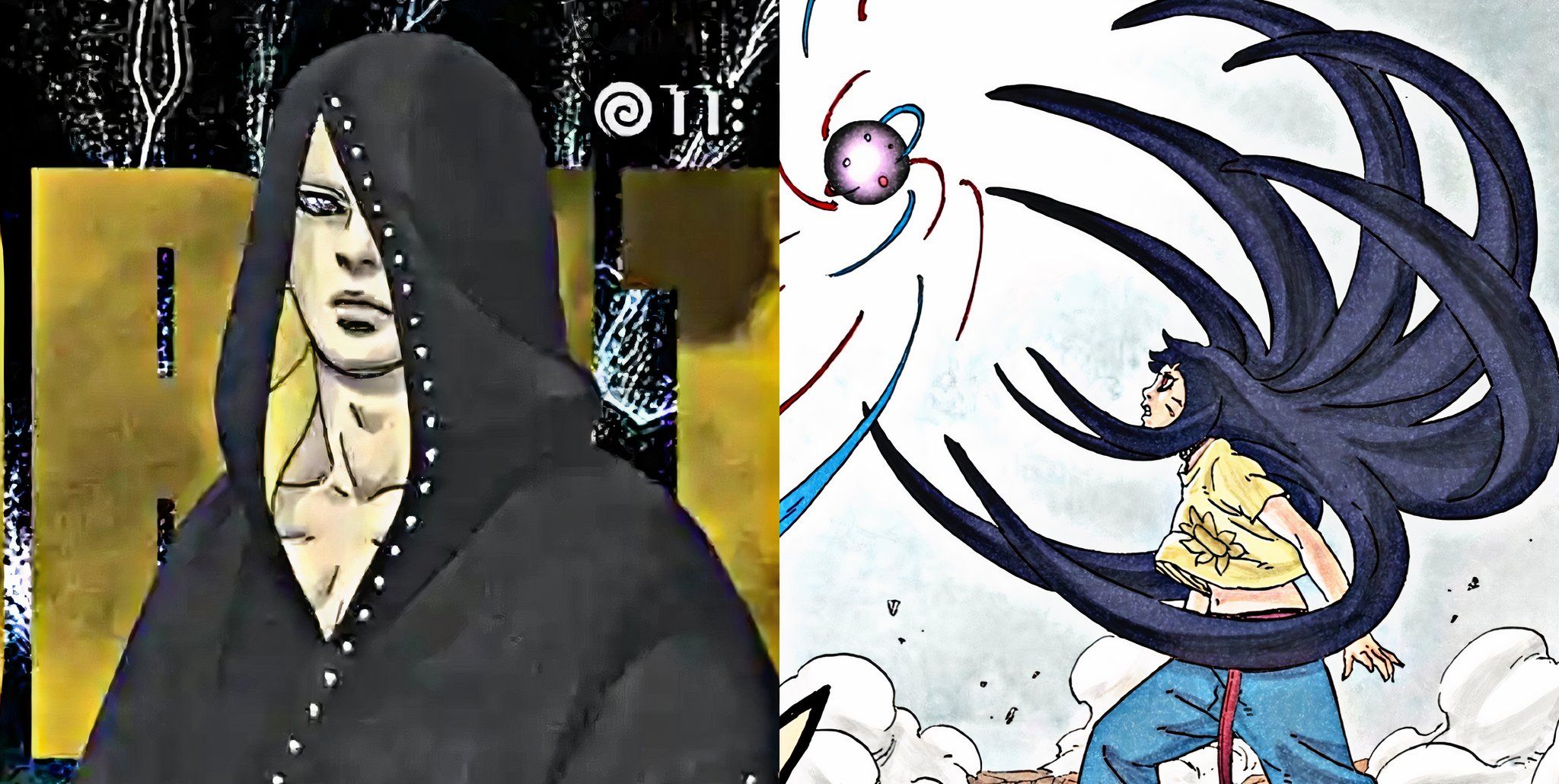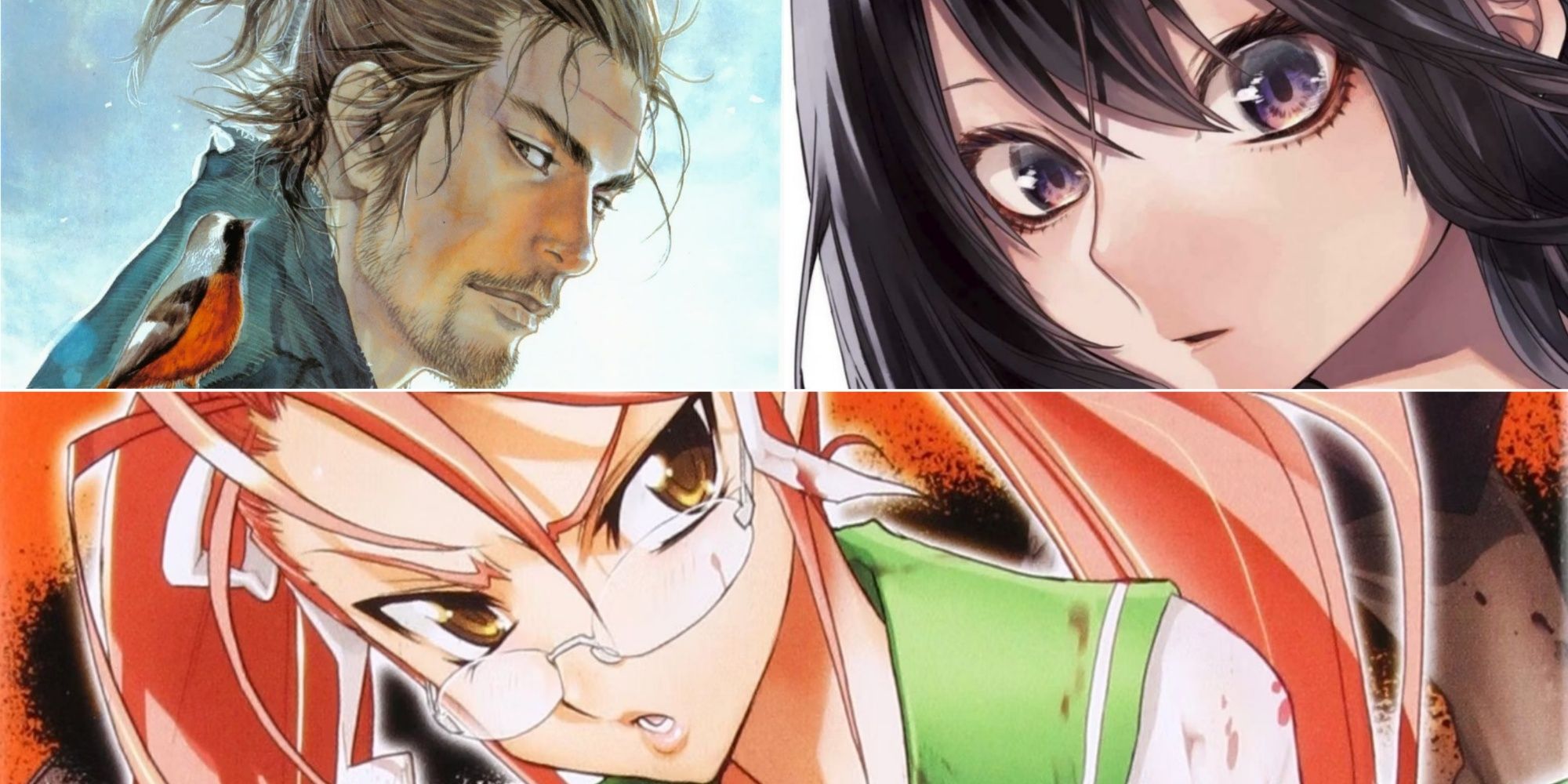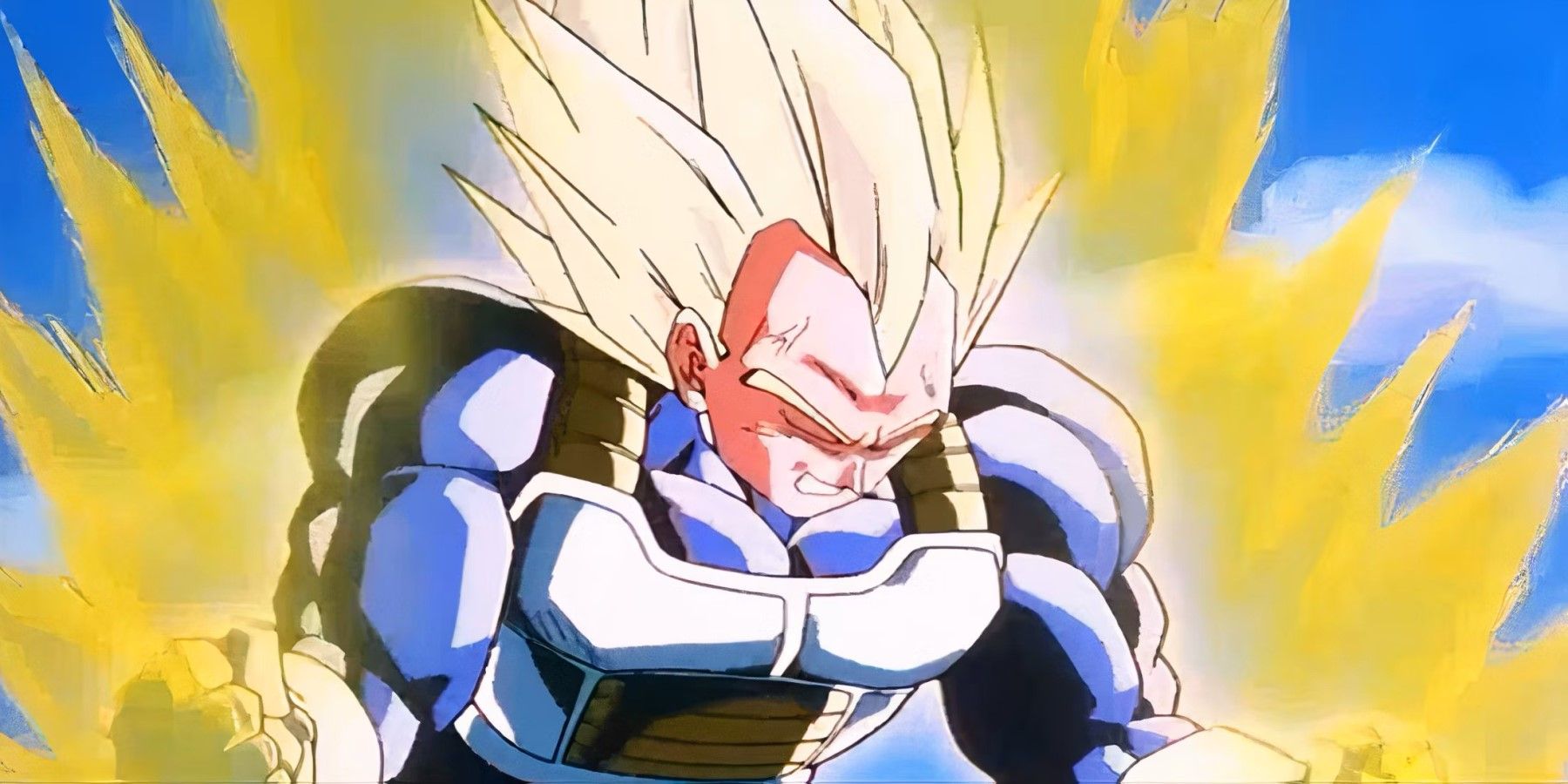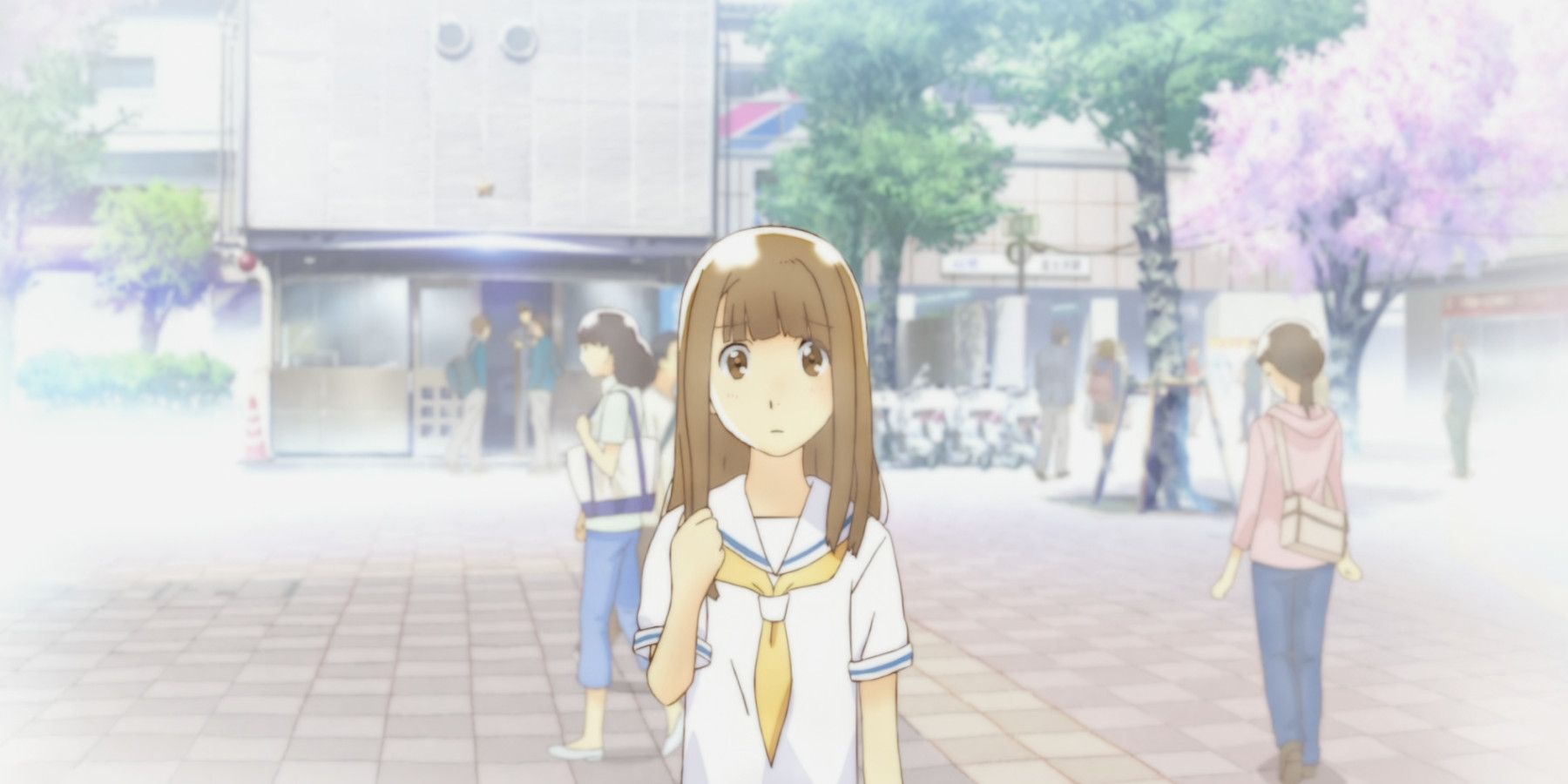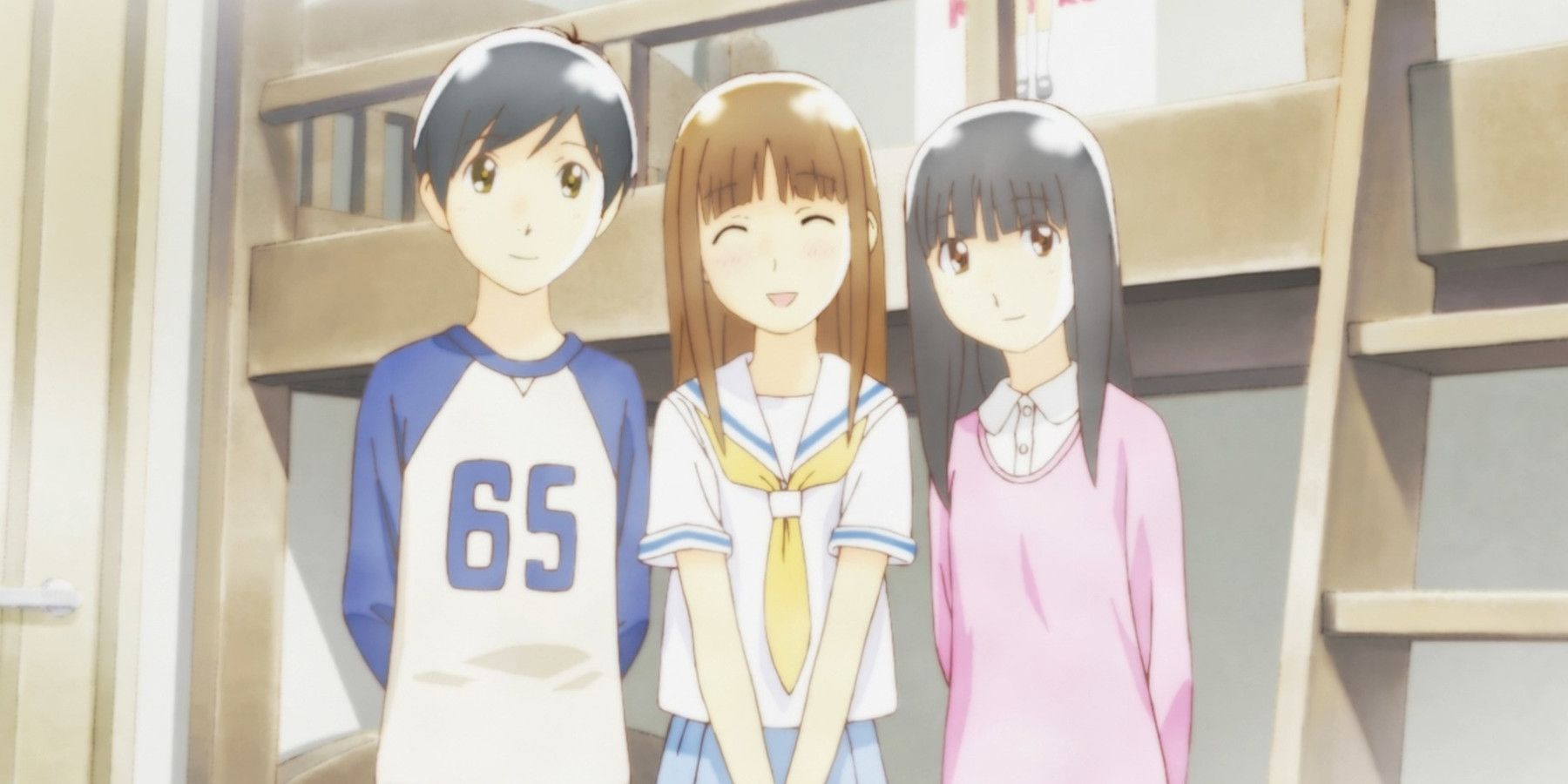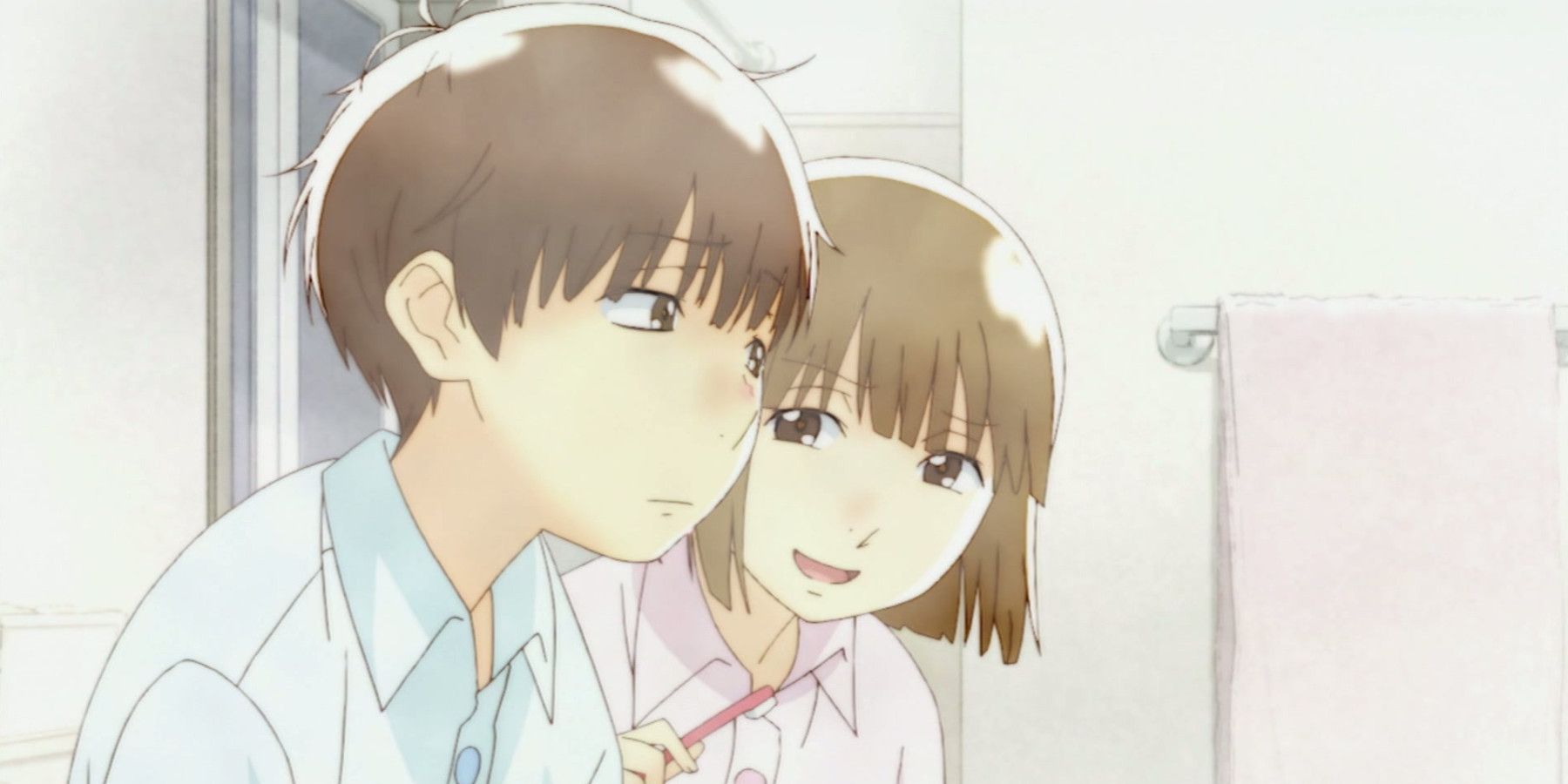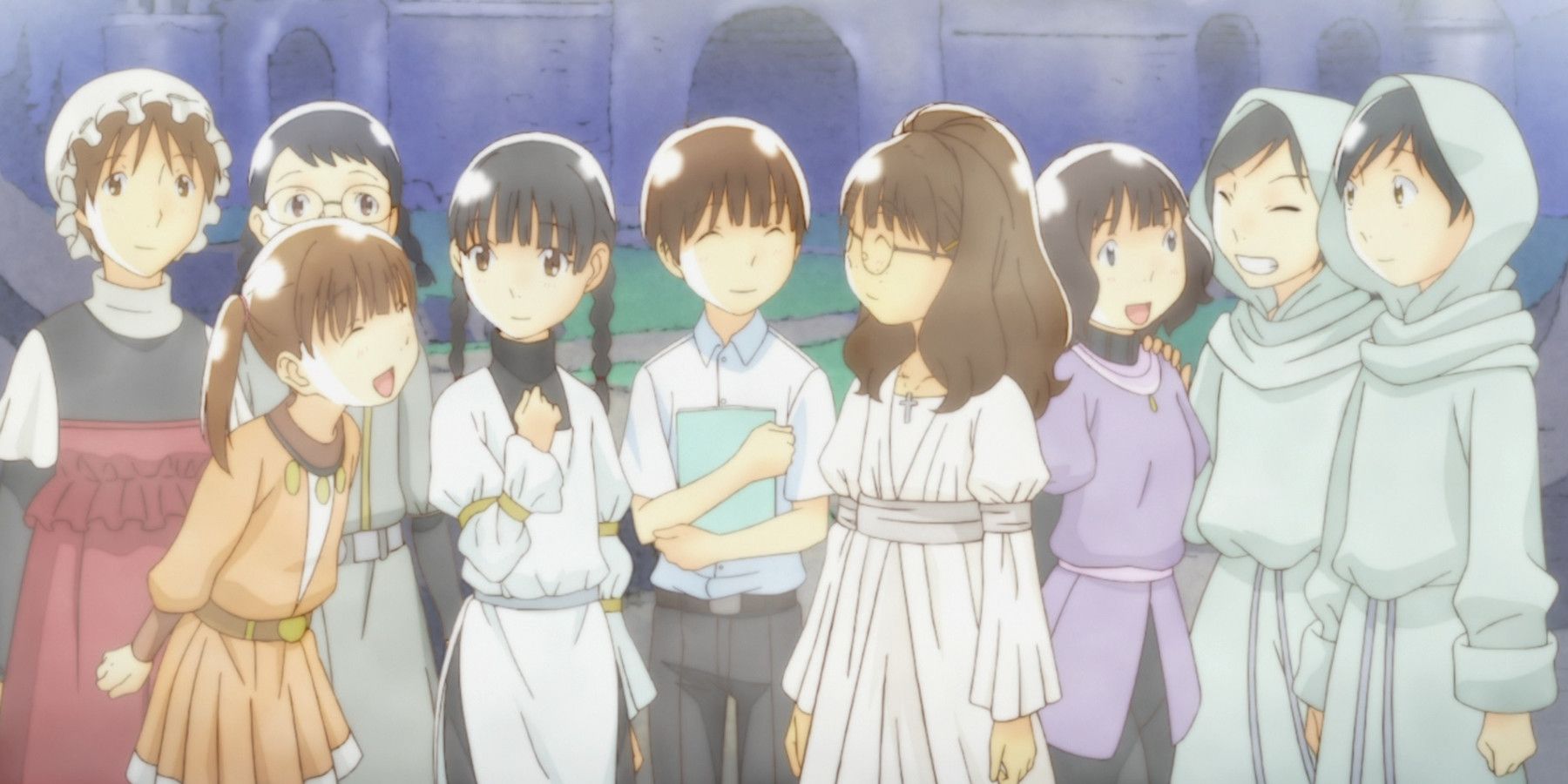The growing inclusion of queer stories in media isn't a new thing, but rather an acknowledgment of what has been there for decades. Anime is no exception, with classics of the 90s like Evangelion and Utena having explored queerness through storytelling that could hardly be called subtextual, and in 2011, Hourou Musuko: Wandering Son, told a daring story of its own.
Based on Takako Shimura's manga of the same name, Hourou Musuko tells the story of Shuuichi Nitori, a trans girl who was assigned male at birth, and Yoshino Takatsuki, a trans boy who was born a girl. This anime is a coming-of-age story following their time in elementary school, as they navigate puberty and society's expectations for them. To say that queer stories aren't a new thing is accurate, but it also buries the lede considerably, considering the amount of queer-positive messages that were either suppressed, censored, or denied. Even today, older examples of queer representation, such as the queer elements of Neon Genesis Evangelion, are still discussed as if the content is "debatably gay."
Understanding the Significance
Films and shows talking about trans issues have existed for a long time as well, but the farther back one looks, the scarcer and more contested the representation is. A simple search of notable transgender films will yield lists of insightful recommendations, but a great deal of them, at least in the west, are recent, with an upsurge from the 2010s up to now.
So it's important to recognize how bold a show like Hourou Musuko was at a time just before a wave of transgender actors and actresses began coming out. Just before hugely popular TV and film productions were sharing trans stories and trans icons within Hollywood rose to prominence. This was a slice-of-life anime about trans issues coming out the same season as Madoka Magica, another anime that would reveal itself to be quite queer itself.
There was also some serious talent behind the scenes of the series, including the director of Fate/Zero, Aldnoah.Zero, and Re: Creators, Ei Aoki. Writing the adapted screenplay was the queen of teen melodrama herself, Mari Okada, the legendary screenwriter behind Toradora, Anohana, Maquia, and Kiznaiver among many others. Even Monogatari composer Satoru Kousaki got involved to compose the score.
The sheer talent behind the project makes it abundantly clear that this wasn't an adaptation done lightly. The manga itself was already an acclaimed work, having received recognition by the Japan Media Arts Festival in 2006, so an animated work demanded a fitting treatment. From the outset, it seemed to get just that.
The Art & Animation
Hourou Musuko's art design is almost infectiously bright as if the world itself is almost lightly faded. In this sense, it's very dreamlike, an aesthetic that lends itself well to such a vibrant cast of kids grappling with so much stress. In another way, the series evokes the look of a children's storybook, something approachable and comfortable, but also educational.
This isn't to say that the content is not, expectedly and arguably out of necessity, heavy at times, because it certainly goes for the heart. It is difficult to watch children who are at the cusp of finding some sliver of happiness be reminded how unkind the world can be. Through this storybook art style, there is a lot of empathy to be gained watching their story.
Speaking personally, this series was introduced to me at a time in my adolescence when I had not been exposed to many transgender stories, much less queer stories of any kind. Being able to witness a story like this, written with the same passion and grit as other shows like Anohana was hugely impactful.
The Story
While the narrative tackles a large cast of mostly young characters, the primary focus is on Shuuichi and Yoshino, who both have very different struggles with their gender identity. The decision to have both MTF (male-to-female) and FTM (female-to-male) protagonists is genius and allows the story to cover more of the hurdles the characters face. As puberty causes their bodies to change, both characters face even greater stress as their identity and how they comfortably present themselves are challenged. And the texture of these conflicts varies by the protagonist, like how Yoshino dressing in a boy's uniform is passable if controversial, but Shuuichi dressing in a girl's uniform is cause for uproar.
None of that is about trying to say that one has it easier than the other. The series does tend to focus on Shuuichi's story more than Yoshino's, but neither's problems with their bodies contradicting their identity is any less valid. The pair of trans youth at the forefront of this story are also the main love interests, more than willing to love the other for who they see themselves as, although the story becomes more of a love triangle later on. A through-line of the story, across both school years that the show takes place, is a play for the school festival, of which Shuuichi is the writer. The play is a gender-bent play in which all the boys play female parts and all the girls play male parts. This is a source of some drama, but it is ultimately the story's greatest source of joy and reprieve for the characters.
Shuuichi struggles with being bullied for her feminine look and behavior, but once they're performing the play, almost all of that is forgotten. There is only a story that endears audiences to characters. In a way, there is a feeling of hope instilled in the viewer that some change of heart might slowly take root in people. It's not the most secure hope, and by the end, viewers might not find the anime's last episode to be conclusive. The anime never adapted the rest of the manga or its reportedly divisive ending. In that, the commitment may seem fruitless, but for how boldly and vividly it spotlights trans youth, its storytelling offers small reveries that make the journey worth it.
It's almost tempting to say that if this show released today, it would have been more controversial, but that may just be because the dissenting opinions towards trans rights have just been louder. Considering the aforementioned growth of support, this is absolutely the kind of show that would be made today. It's merely a surprise, however pleasant, that the talented creators behind this show made it when they did.
